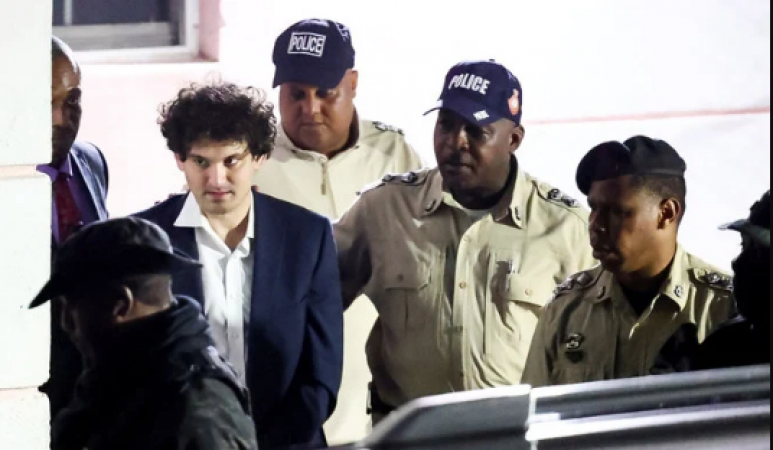
Washington: FTX founder Sam Bankman-Fried is more likely to agree to his extradition to the United States to face fraud charges after failing to be released on bail in the Bahamas on Tuesday, according to legal experts.
After federal prosecutors in New York revealed charges against Bankman-Fried in connection with the demise of his once-promising cryptocurrency exchange, FTX, a judge mandated that he be detained at the Bahamas Department of Corrections until at least February 8. be placed, citing his "great". "Danger of flight.
Bankman-turned-lawyer Fried said before his bail was rejected that his client was not waiving his right to extradition proceedings. If he contests eviction, the process could last a year or more and include hearings and appeals, with little chance of success in the end, according to experts.
Also Read: Musk is no longer the richest person in the world, know who surpassed him?
Fox Hill Prison is another name for the facility where Bankman-Fried is detained. Requests for comment from a Bankman-Fried attorney were not immediately returned.
Lawyers who focus on extradition claim that imprisonment in another country often persuades criminals to agree to return to their home countries.
"The extradition process could take a year or more," said a US attorney defending individuals facing extradition. "Typically, people don't want to spend time in a foreign prison. This often plays a role in whether someone resists extradition."
According to Bahamian corrections officials, Bankman-Fried will initially be held in the medical section of the facility while staff members decide where to place her. On February 8, Bankman-Fried is scheduled to appear before a separate Bahamian magistrate judge.
Also Read: Indiscriminate firing in Australia, 6 dead including 2 policemen
The US-Bahamas agreement stipulates that the alleged crimes must be considered crimes in both countries, as do most extradition treaties. Attorneys say Bankman-Fried is unlikely to persuade a Bahamas court that wire fraud and securities fraud are not crimes in the Bahamas.
According to white-collar criminal defense attorney Jack Sharman, Bahamian law generally follows US law in these matters. "I would not anticipate legal disparities to pose a significant barrier to extradition."
A Bahamian court would need to take these issues into account before releasing Bankman-Fried for extradition. Bankman-Fried may also argue that she would not receive a fair trial in the United States, face unfair punishment, or experience inhumane treatment.
This has helped some defendants to postpone extradition, notably WikiLeaks founder Julian Assange, who fought extradition from Britain to the United States to face charges for allegedly disclosing classified military intelligence. Is.
However, US prosecutors recently won a favorable ruling in his extradition proceedings by promising to keep Assange safe in custody. According to Haas, similar agreements could potentially be reached by the US and Bahamian governments.
Also Read: New York can now impose restrictions on guns on private property thanks to a court ruling
There is often a diplomatic element. According to Haas, treaties are used to handle all of this.